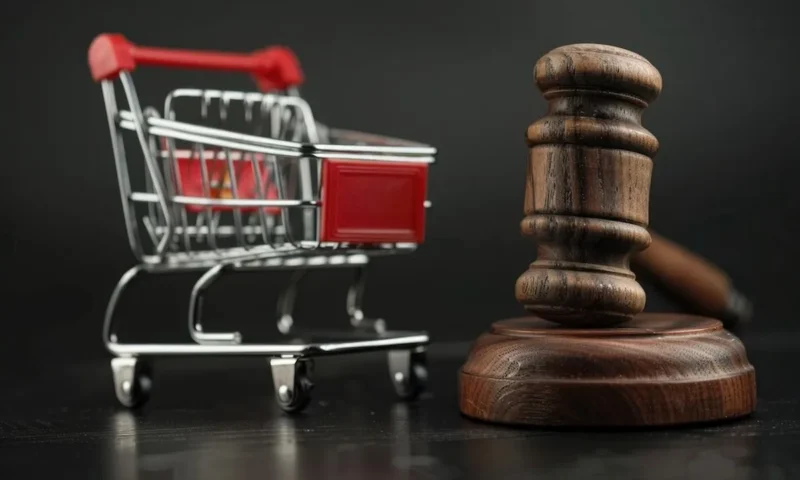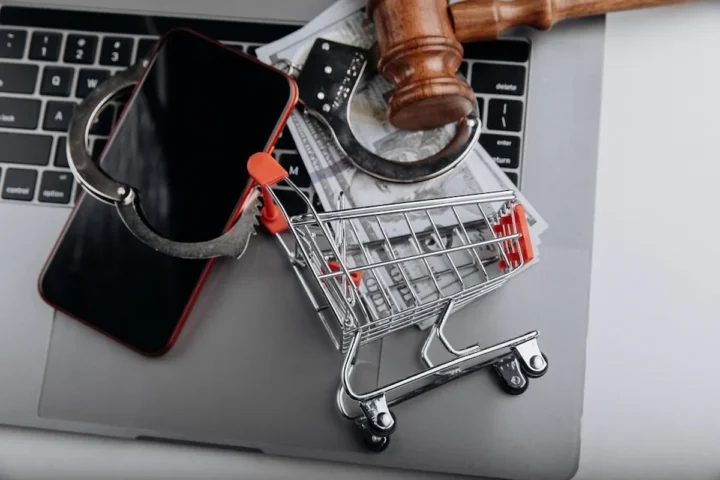
Introduction
In today’s era of digital entrepreneurship, one question stands out for both aspiring and experienced e-commerce entrepreneurs: Is dropshipping legal? With the rapid growth of e-commerce, dropshipping has emerged as a lucrative business model due to its low overhead costs and ability to scale globally. However, while the simplicity of dropshipping is appealing, it often conceals complex legal issues that could jeopardize your business if not addressed.
This article takes an in-depth look at the legality of dropshipping. From licenses to contracts and consumer protection laws, we’ll explore how you can ensure your business complies with current laws and regulations. Let’s break down everything you need to know to build a compliant and successful dropshipping operation.
Also read: Top 10 Best Dropshipping Sites to Build Your Online Store
Understanding Dropshipping
What is Dropshipping?
Dropshipping is a retail fulfillment model that eliminates the need for a seller to stock or manage inventory. In this business arrangement, when a customer places an order through the seller’s online store, the seller does not fulfill the order themselves. Instead, the seller purchases the product from a third-party supplier or manufacturer, who is responsible for packaging and shipping the item directly to the customer’s address. This process ensures that the seller acts purely as an intermediary between the supplier and the buyer.
Key aspects of dropshipping include:
- No Inventory Management: Sellers are not required to store products in a physical warehouse or maintain inventory levels, reducing operational complexities.
- No Upfront Stock Investment: Unlike traditional retail models, there is no need to purchase products in bulk or invest heavily in stock that may not sell.
- Middleman Role: The seller primarily focuses on marketing, customer acquisition, and order processing, while the supplier handles the logistics of product fulfillment.
- Scalability: Dropshipping allows sellers to offer a wide range of products without the burden of managing inventory for each item.
This business model is particularly appealing to entrepreneurs due to its low startup costs, operational simplicity, and the flexibility to run the business from virtually anywhere with an internet connection.
Why is Dropshipping Popular?
Dropshipping has gained immense popularity for several reasons:
- Low Startup Costs: Entrepreneurs can start with minimal investment as they don’t need to purchase inventory upfront.
- Global Reach: With the right suppliers, businesses can cater to customers worldwide.
- Scalability: It’s easier to scale operations without worrying about physical stock.
- Flexibility: Entrepreneurs can work from anywhere, making it ideal for those seeking location independence.
However, with great potential comes significant responsibility—especially when navigating the legal aspects of this business model.
Legal Aspects of Dropshipping

Licenses and Legal Structures
Before launching your dropshipping business, you must establish a proper legal foundation. Here’s how:
Choose the Right Legal Structure
- Sole Proprietorship: Simple to set up but offers no personal liability protection.
- Limited Liability Company (LLC): Popular among small business owners due to its flexibility and protection from personal liability.
- Corporation: Suitable for larger enterprises, with more administrative requirements and tax obligations.
Each structure has advantages and disadvantages, so choose based on your business goals and risk tolerance.
Obtain Necessary Licenses
- A basic business license is often required for online businesses.
- Some jurisdictions mandate specific licenses, especially if you’re dealing with international suppliers or regulated products.
- Check local and federal laws to ensure compliance.
Supplier Agreements and Contracts
Strong supplier relationships are the backbone of a successful dropshipping business. Drafting detailed agreements is crucial to avoid misunderstandings and legal complications:
- Conditions of Sale: Clearly outline order processing, return policies, and dispute resolution mechanisms.
- Quality Standards: Ensure suppliers commit to maintaining product quality. Frequent issues with defective products can harm your brand.
- Shipping Terms: Define responsibilities for tracking, handling, and returns to streamline the fulfillment process.
Intellectual Property Concerns
Protecting intellectual property (IP) is essential to avoid legal disputes:
- Avoid Counterfeit Products: Selling counterfeit items is illegal and damages consumer trust.
- Use Original Content: Obtain permissions for product descriptions and images or create your own to avoid copyright violations.
- Trademark Awareness: Familiarize yourself with trademark laws to ensure you’re not infringing on another brand’s rights.
Consumer Protection Laws
Return Policies
Even if your supplier has specific return policies, it’s essential to:
- Offer clear, fair, and transparent conditions to your customers.
- Communicate timelines and refund processes effectively.
- Align your return policies with consumer protection laws in your target markets.
Data Protection Regulations
Handling customer data responsibly is a legal and ethical necessity:
- GDPR Compliance: If targeting EU customers, adhere to the General Data Protection Regulation (GDPR).
- Transparency: Inform customers about how their data will be used.
- Secure Systems: Implement robust data protection measures to safeguard personal information.
How to Ensure a Legal Dropshipping Business
Follow these actionable steps to operate a legally compliant dropshipping business:
- Research Laws and Regulations
- Understand the rules governing e-commerce in your jurisdiction and target markets.
- Familiarize yourself with industry-specific regulations, such as those for health or electronic products.
- Build Strong Supplier Relationships
- Vet suppliers thoroughly to ensure they’re reputable.
- Establish legally binding agreements that address responsibilities and dispute resolution.
- Consult Legal Professionals
- Seek advice from an e-commerce attorney to review contracts, agreements, and policies.
- Regular consultations can help you stay ahead of legal changes.
- Stay Updated on E-commerce Laws
- Monitor updates to data protection, consumer rights, and international trade laws.
- Subscribe to industry newsletters and legal updates.
Case Studies: Lessons from Real Businesses
TechGear Online
This e-commerce store specializing in tech accessories faced challenges with data protection regulations. By implementing stricter privacy policies and adopting transparent practices, the company:
- Gained customer trust.
- Reduced complaints related to data misuse.
- Enhanced brand loyalty, leading to higher sales.
Fashionista Dropshipping
A clothing retailer struggled with supplier reliability. After switching to vetted suppliers and establishing clear agreements, the business:
- Improved delivery times.
- Reduced return rates.
- Strengthened customer satisfaction.
Conclusion
So, is dropshipping legal? The answer is a resounding yes, but it’s not without its complexities. Navigating the legal landscape requires diligence, research, and proactive measures. By understanding the nuances of licenses, contracts, and consumer protection laws, you can build a compliant and thriving dropshipping business. Remember, staying legally compliant isn’t just about avoiding lawsuits—it’s about building trust and ensuring long-term success in the competitive world of e-commerce.
FAQs about Dropshipping Legality
Is dropshipping legal worldwide?
Yes, dropshipping is legal in most countries. However, specific regulations and compliance requirements vary by jurisdiction.
Do I need a license to start a dropshipping business?
In most cases, you’ll need a basic business license. Additional licenses may be required depending on your location and products.
Can I get sued for dropshipping?
Yes, if you violate intellectual property laws, sell counterfeit products, or fail to meet consumer protection standards.
How do I ensure my dropshipping suppliers are legitimate?
Conduct thorough research, ask for references, and test products before committing to a partnership.
Do data protection laws apply to dropshipping businesses?
Yes, especially if you collect and store customer information. Regulations like GDPR are crucial if targeting customers in the EU.
Sources
Is Dropshipping Legal? A Guide to the Legal Risks (2025) – Shopify





